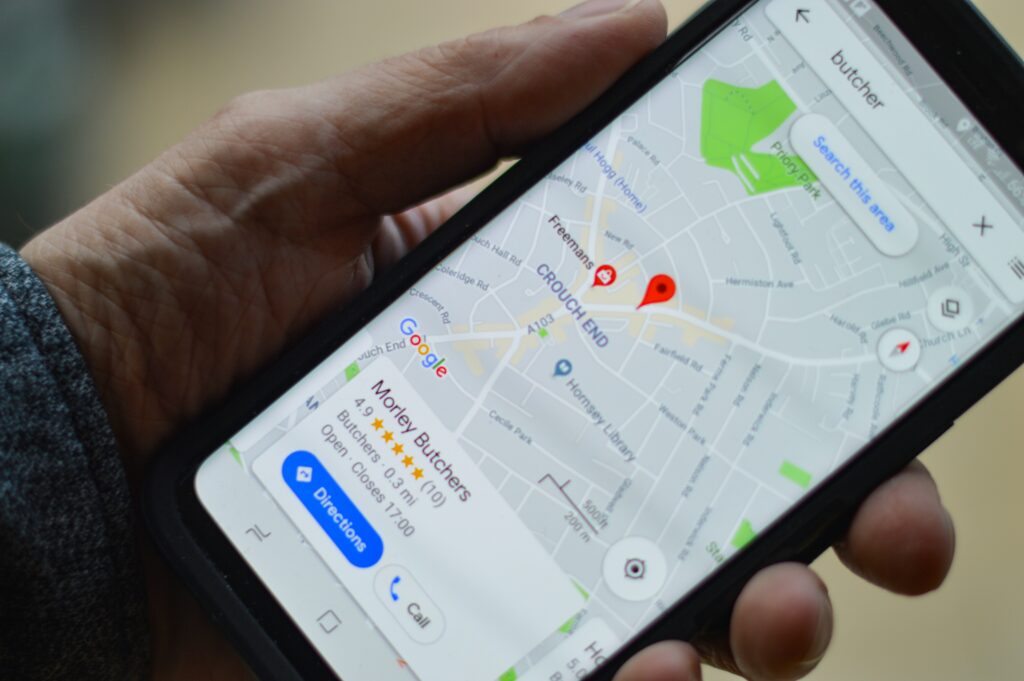Optimizing your online presence with landscaping SEO can be a challenging journey.
The digital landscape is vast, and standing out among the competition often feels like an uphill battle. But this is what separates the average from the extraordinary.
If you’re unsure about how to navigate through search engine optimization (SEO), it’s easy to feel overwhelmed.
You needn’t worry because mastering SEO isn’t as daunting as it seems.
Our team of passionate, trained SEO professionals knows how to engage your website visitors with the right keywords and increase your website traffic.
Let’s begin!
What is SEO for Landscaping Companies?
Search Engine Optimization (SEO) is a digital marketing technique that aims to improve the online visibility of businesses, including those in the landscaping industry.
For landscaping companies specifically, this means optimizing your web presence in such a way that potential customers searching for local landscape services find you easily.
SEO and Its Importance in the Landscape Industry
In today’s digitally driven world, people turn to search engines like Google (no more physical yellow pages) when they need any service, whether it’s finding their favorite restaurant or seeking lawn care companies.
Having an effective SEO strategy that targets core search terms relevant to your business can make all the difference.
This involves several key elements, including keyword research, off-page SEO, and content creation.
Implementing these types of SEO services can help to increase your visibility, and establish credibility among potential clients.

Focusing on Local: A Crucial Aspect of Landscaper’s SEO Strategy
A significant part of successful landscaping marketing revolves around local SEO optimization.
As most landscaping businesses cater to specific geographical areas, focusing on localized keywords becomes crucial to engaging your searchers.
For example, when someone uses Google search and looks for “landscaping services near me”, you need your company to appear at the top of Google.
This would include prior research to relevant landscaping keywords, understanding your competitors, and customer search trends.
Further Reading: What are The Steps in an SEO Audit?
Why Do Landscaping Companies Need SEO?
Search Engine Optimization (SEO) is a critical element in enabling your business to be seen by those searching for landscaping services online.
Enhancing Online Visibility
In an era where search engines are the go-to resource for finding local businesses like lawn care and landscape contractors, it’s crucial that your company appears prominently in these results.
Most users will engage with organic listings rather than adverts powered by pay-per-click (PPC) campaigns, but there is still a lot of distraction in the SERPs.
An effective SEO strategy can propel you into these coveted spots on search engine result pages (SERPs), thus driving more traffic to your site and increasing conversions.
Achieving Competitive Advantage
If other players in the landscaping industry haven’t yet harnessed the power of SEO, there lies an opportunity for you to get ahead.
By implementing robust SEO campaigns, including technical SEO strategies such as mobile-first indexing or even Google AdWords usage, you could gain a significant competitive advantage by being easily discoverable online.
Deep Dive: Learn How to Do an SEO Competitor Analysis Report
Gaining Local Prominence
Your company’s website might be listed on directories but ensuring prominence during location-based searches is essential.
With focused efforts towards local rankings through Google Maps optimization and citation building within relevant service pages, achieving this becomes possible.
That’s why it is essential that your SEO company or digital marketing agency knows how to harness the power of local search to boost your business.
Keyword Research for Landscapers: A Crucial SEO Strategy

The cornerstone of a successful SEO campaign is comprehensive keyword research. This step involves identifying the specific terms and phrases your potential customers are using when they search online for landscaping services.
This is a time for the business owner to outline all of the services they want to be known for online. Then, turning those services into valuable keywords will give you the first step to entering Google’s first page.
Digging into Your Audience’s Search Behavior
In order to maximize the efficacy of your website, it is essential to grasp how those you are targeting utilize search engines.
What keywords might they type in Google while looking for landscaping websites or lawn care services? These industry-specific keywords can provide valuable insights about what potential clients want.
Finding High-value Keywords
A tool like the Google AdWords Keyword Planner proves invaluable at this stage as it helps you discover new relevant keywords related to landscaping businesses and provides data on their frequency of use on Google.
Evaluating Keyword Competition Levels
In addition to finding high-value keywords, understanding competition levels within SERPs (Search Engine Results Pages) is equally important. Although ranking highly for competitive terms may be challenging, doing so could significantly boost site traffic from local searches by prospective customers searching these popular phrases.
Leveraging Long-tail Keywords
Long-tail keywords, longer and more detailed phrases often used by people closer to making purchase decisions, typically have less competition than broader ones.
By incorporating such targeted language into content marketing efforts – whether that’s blog posts or service pages – landscapers can attract not just more visitors but also those most likely ready to hire them.
Remember: The ultimate goal isn’t merely attracting higher volumes of traffic; instead, the focus should be placed on drawing in quality leads who are genuinely interested in utilizing professional landscaping services.
Unleashing the Power of On-Page SEO for Landscaping Companies
Understanding and implementing on-page SEO strategies is essential in a digital world where search engines rule. This rings especially true for landscaping companies looking to increase their visibility online.
The Art of Title Tag Optimization
Title tags serve as your webpage’s headline in search engine results pages (SERPs). They are vital components that help potential customers identify what your page offers at a glance. Optimizing these title tags can greatly enhance your site traffic and organic results.
Dive Deeper: What Is Keyword Density?
Making Meta Description Tags Work For You
Description tags provide concise summaries about web pages which are commonly used by search engines on SERPs.
A well-crafted description tag serves as an advertisement, enticing users to click through from SERP onto your website.
Avoid keyword stuffing; instead aim for compelling descriptions containing long-tail keywords that accurately represent each specific page content.

Blog Content Ideas for Landscapers
High-quality content is an essential element for any successful SEO campaign, particularly in the landscaping industry as it offers a platform to showcase services and provide valuable advice to potential customers.
This holds true, especially for landscaping businesses, as it allows them to highlight their services while offering valuable insights to potential customers.
Landscape Design Tips and Tricks
A blog post filled with practical advice on landscape design can be an invaluable resource for homeowners looking to enhance their outdoor spaces.
Discussing everything from selecting the right plants based on climate conditions, arranging them in an aesthetically pleasing manner, or even introducing your readership to fundamental principles of landscape design could make this topic quite engaging.
Maintenance Guides For Each Season
Your expertise in maintaining landscapes across different seasons can offer priceless guidance to your audience.
Blog posts about preparing lawns during winter months, spring cleanup activities, summer watering schedules, or managing fall leaves would all serve as excellent subjects that resonate with local searches made by potential clients.
Showcasing Completed Projects Through Case Studies
Demonstrating completed projects using before-and-after pictures coupled with details of your process helps prospective clients visualize what you could do for their property.
Not only does this showcase your skills but also builds trust among potential customers through real-world examples of your work.
Google Business Profile Setup

A Google business profile is a key element in your landscaping company’s online presence. It enables you to claim your listing on Google My Business (GMB), enhancing local SEO and increasing visibility for potential customers.
The Significance Of Claiming Your GMB Listing
An up-to-date Google business profile provides essential information about your operations, including hours, location details, contact data, and customer reviews.
This transparency fosters trust with prospective clients while encouraging them to choose you over competitors lacking similar digital footprints.
Steps to Set Up a Google Business Profile
To establish a robust presence on GMB involves several steps:
- Create or sign into the Gmail account that will manage the page.
- Navigate directly to Google My Business.
- Select ‘Manage Now’ then add the name of your landscaping company.
- Add all necessary information ensuring consistency across all platforms where you have an online footprint. This should include your social media profiles (if relevant) website address, contact numbers, email address, physical address as well as relevant images that showcase your service.
Maintaining An Optimized Google Business Profile
Maintenance is crucial once set up; any changes in operational hours or offered services must be promptly updated on the GMB platform.
Encourage satisfied patrons to leave positive reviews which influence decision-making processes among new visitors while improving rankings via their engagement factor.
Enhancing Website Load Time: A Key SEO Strategy for Landscaping Companies
The loading speed of your landscaping business’s website is a significant factor that influences its performance on search engines. When potential customers are looking up landscaping services online, they expect fast and efficient results. When a page takes too much time to show up, it not only leads to user dissatisfaction but also conveys unfavorable signs about the website’s usability to Google.
Website Speed: Why It Matters?
Today, instant gratification rules supreme, and website speed can make or break your online presence. For instance, according to data shared by leading tech companies like Google Developers, even a one-second delay in mobile page response can lead to a 7% reduction in conversions.
Tips To Improve Your Site’s Loading Speed
- Clean Code: Unnecessary code elements could be slowing down your site significantly. Consider minifying CSS files and JavaScript to streamline them.
- Leverage Browser Caching: This method allows browsers to store copies of pages so they don’t have to reload everything on each visit, thereby improving overall load times considerably.
- Avoid Redirects: Excessive redirects increase HTTP requests, thus increasing the loading time.
Link Building for Landscapers: A Key SEO Strategy
In the digital landscape, relevant and quality backlinks play a pivotal role in enhancing your landscaping business’s online visibility. This process involves securing hyperlinks from other websites that point back to yours.
A successful link building strategy can significantly elevate your website’s domain authority and its rankings on search engine results pages (SERPs). When reputable sites link to you, it signals Google and other search engines that your content is valuable and trustworthy.
This not only improves SERP rankings but also drives more organic traffic to your site. Increased traffic often equates to an influx of potential customers interested in availing your landscaping services.
Local link building will boost a company’s visibility in specific local geographical areas.
Local citations, another form of link building where mentions include the name, address, phone number (NAP) details about businesses across various platforms online, helps improve local SEO too.
FAQs in Relation to Seo for Landscaping Company
How do I promote my landscaping business?
Promote your landscaping business through SEO strategies, social media marketing, local advertising, and by building a robust online presence with a well-designed website.
How do you market a landscape design?
Market landscape designs by showcasing them on your website and social media platforms. Use high-quality images and videos to highlight the details of your work.
How do I promote my landscaping business on Facebook?
Create engaging posts about your services, share customer testimonials, use targeted ads for local reach, and interact regularly with followers to promote your landscaping business on Facebook.
How do you write a good review for a landscaping company?
A good review should detail the quality of service received, the professionalism of staff members, and overall satisfaction. Be specific about what made the experience exceptional.
Conclusion
SEO for a landscaping company is no longer an option, but a necessity in today’s digital world.
From keyword research to on-page optimization techniques, every aspect plays a crucial role in improving your website’s ranking.
A well-optimized Google Business Profile can further enhance your local presence and credibility among customers.
Quality blog content ideas can attract more visitors, while link building solidifies the authority of your site within the industry.
And remember – speed matters! A fast-loading website ensures a better user experience, leading to higher conversion rates.
If you’re ready to elevate your landscaping business with effective SEO strategies, consider partnering with SERPreach.
With our expertise in search engine optimization, niche edit link building, guest posts, and blogger outreach, we’ll ensure that you stand out from the competition.
Your growth is our success! Contact Us Today.

